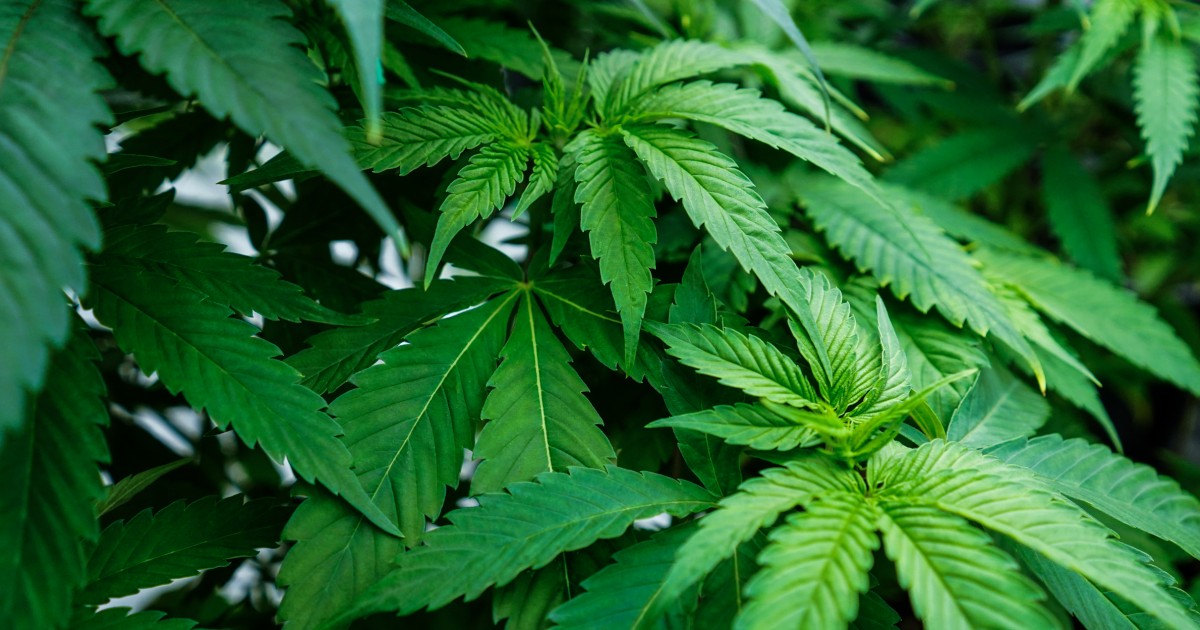
Women who use marijuana during pregnancy may be putting their babies’ health at risk, with risk increasing as use goes up, a new study suggests.
An analysis of data from more than 9,000 moms-to-be from across the U.S. revealed that cannabis exposure during pregnancy is associated with an increased risk of unhealthy outcomes, especially low birth weight. Moreover, the more cannabis moms-to-be consumed, the higher the risk, according to the report, published Tuesday in the Journal of the American Medical Association.
“We found that cannabis use during pregnancy was associated with a risk of poor pregnancy outcomes,” said the study’s lead author, Dr. Torri Metz, a high-risk obstetrician and an associate professor at University of Utah Health. “And the risk increased with increasing use during pregnancy. This shows that it’s best not to use cannabis during pregnancy.”
The researchers looked at the impact of marijuana use on a combination of possible negative outcomes — low birth weight, medically induced preterm birth, stillbirth and pregnancy-related high blood pressure in the moms-to-be — and found that the risk rose by nearly 30% in those who used cannabis while pregnant.
“The reason we combined them together is that they are all linked to placental function,” Metz said. Earlier research in both animals and humans found that cannabis exposure can negatively affect the placenta, which is the source of nutrients and oxygen for the developing fetus.
When the researchers looked at those outcomes individually, they found a 50% increase in the risk of low birth weight. There was also an increased risk of stillbirth, neonatal intensive care admission and neonatal complications and deaths, but those associations were not statistically significant, meaning the result might simply be due to chance.
Babies who were identified as having low birth weights were smaller than 95% of other babies, Metz said, adding that they might be at risk for other negative health outcomes later in life, such as obesity.
The new study bolsters the findings of a 2021 study that reported health problems in children whose mothers were heavy cannabis users during their pregnancies.
The findings come as more and more states have legalized marijuana for recreational use.
To take a closer look at the possible impact of marijuana use during during pregnancy, Metz and her colleagues turned to data from an earlier study that followed first-time mothers-to-be throughout their pregnancies.
The women in that study were recruited from 2010 to 2013, and all had provided urine samples in each of the three trimesters. The samples were frozen and stored, which allowed Metz and her colleagues to document how much and during which trimesters marijuana had been used during the pregnancies of the 9,257 moms-to-be in the study.
The researchers were also able to document use of tobacco and other drugs and accounted for them in the analysis.
One of the “very notable features” of the new study is that the researchers were able to identify and measure how much, if any, cannabis the moms-to-be had used during their pregnancies, said Ziva Cooper, a professor at UCLA and the director of its Center for Cannabis and Cannabinoids.
“Another important feature is they looked at and compared first trimester use to use throughout the pregnancy: One-third of the women who were using cannabis at the beginning stopped, whereas the other two-thirds continued,” said Cooper, who was not involved with the new study. “And they found different neonatal outcomes.”
A key finding was the correlation between the amount of marijuana used and the level of risk to the baby, Cooper said. More use was linked to a greater level of risk.
Still, the study has limitations, among them the lack of information about why the moms-to-be were using cannabis and exactly when they were smoking or consuming it, Cooper said. Surveys have shown that women often say they use cannabis to help them cope with morning sickness, she added.
“The take-home message for women is that there are still a lot of unknowns when it comes to the risks related to cannabis use during pregnancy,” Cooper said. “It’s encouraging news that the risks were associated with continued use but not use during the first trimester.”
Dr. Silvia Martins, a professor of epidemiology and the director of substance use epidemiology at Columbia University’s Mailman School of Public Health, noted that heavy marijuana use in the first trimester would most likely be concerning.
There needs to be more research in this area, said Martins, who was not involved with the new study.
“And, of course, we need larger numbers of women who are asked detailed questions to be able to figure out the most important adverse effects and exactly what doses of cannabis are problematic,” she said.
A study with more women in it might shed more light on the complications that were not statistically significant in this study, Martins said.






